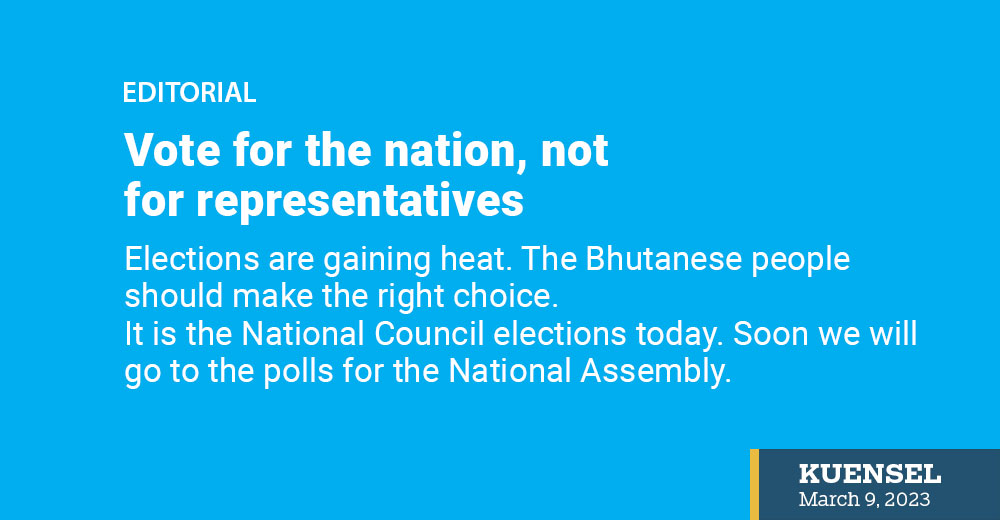Elections are gaining heat. The Bhutanese people should make the right choice.
It is the National Council elections today. Soon we will go to the polls for the National Assembly.
Are we making the right choice for the country?
Politicking is a healthy ingredient in a democracy. But it is useful only in a situation where the voters are highly educated and aware.
Democracy in Bhutan is new, although decentralisation processes began a long time ago.
We had a vision but we need more than vision to forge ahead.
Our voters, largely in the villages, going by the voting rights according to the Election Commission of Bhutan’s new arrangements, is limiting the adult franchise.
The processes for the National Council are halfway done now. For the National Assembly election, voter engagement should be as fairly open as possible.
Otherwise, the danger is that the people can lose faith in democracy and the whole approach of electing their representatives.
We spend huge money on election processes and activities.
Where is the real wind coming from and why? This is the question people are already asking, which indicates that our people are becoming more politically aware.
The real wind is the people’s own concerns and worries. What the people further away from the bigger population centres need is road, hospitals, schools, better agriculture and marketing situations.
When the people do not see these things come to them as development projects, they see the need to go to vote as an unnecessary burden.
Some National Council candidates are doing the rounds of the villages, calling relatives and local leaders for support, to persuade the voters with pledges myriad. The National Council members are people’s representatives and they belong to a House in Parliament laws are reviewed for the long-term interests of the people and nation.
The people must not be swayed by the promises of the aspiring National Council candidates.
The bigger problem facing us, the voters, is the politicking that could take the worst manifestation when the National Assembly begins. Unfortunately, party workers will go all out to win an edge in a crowded competition. In Bhutan, social and relational ties tend to win over long-term national ambitions.
What we need to understand today is that the nation is more important that the people. Vote for the nation, not for the people and representatives. Vote for the candidates who can work to ensure a better, richer, and a more prosperous and self-sufficient Bhutan.


